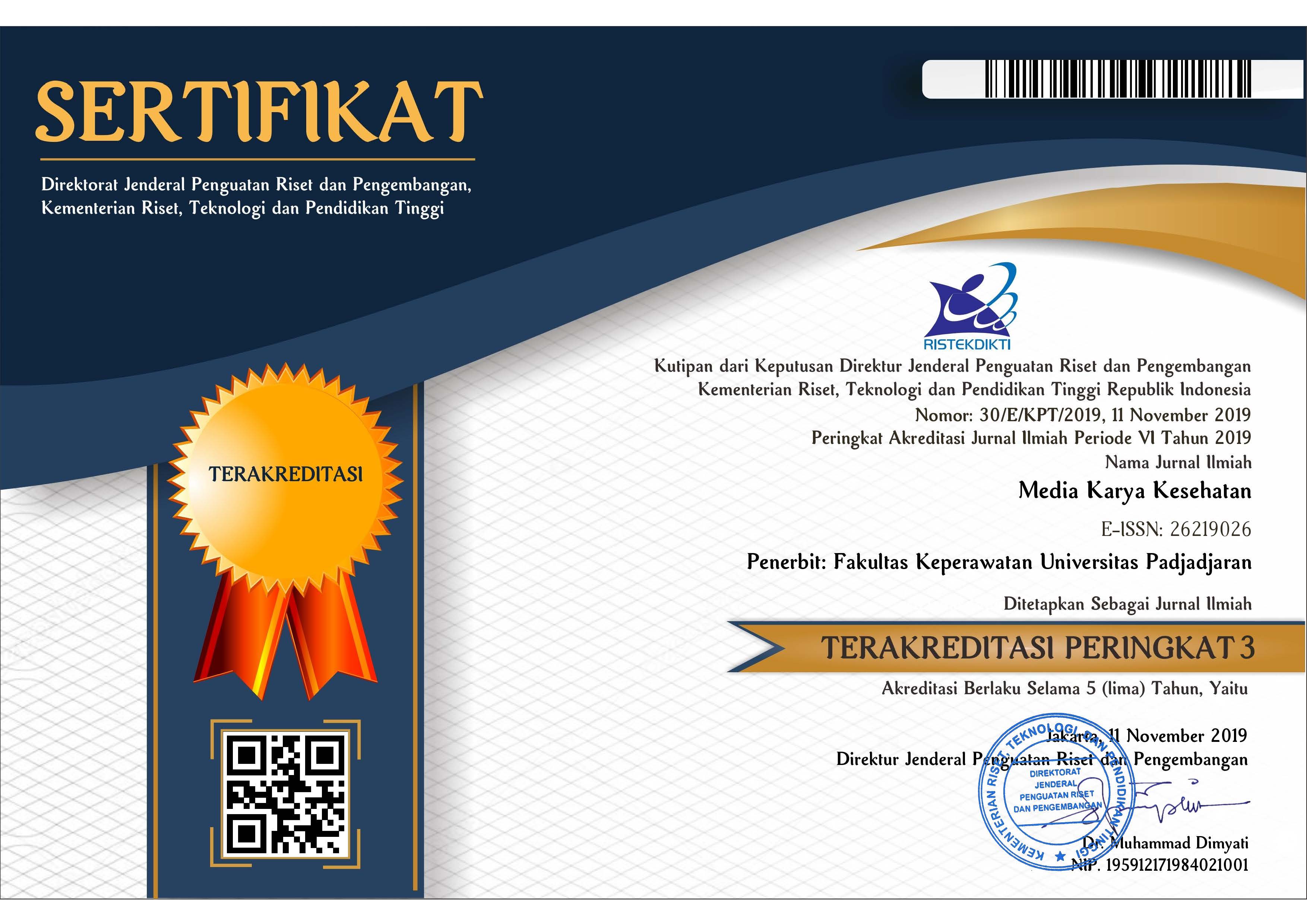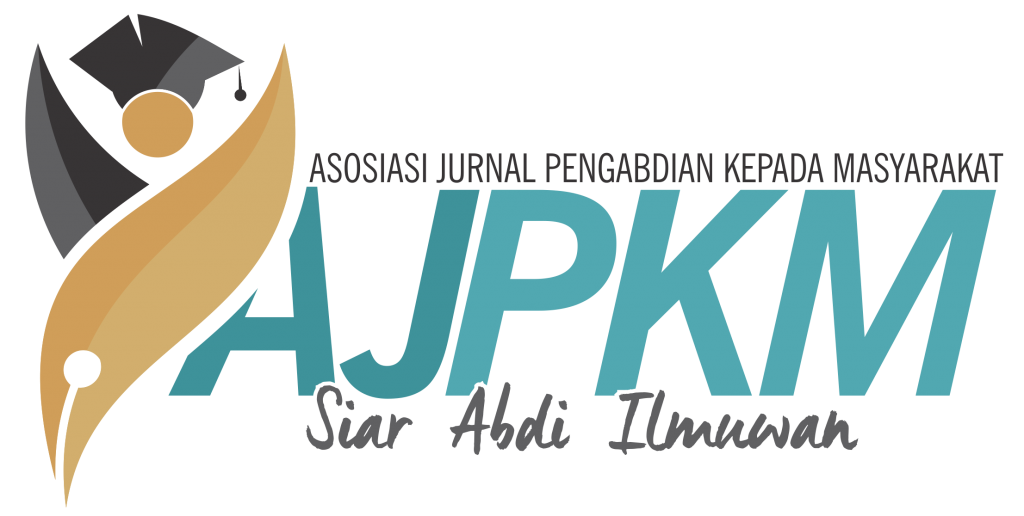Nursing Skills in Handling Earthquakes and the Implications for Nursing Education: A Narrative Review
Abstract
Many countries have high earthquake activities. As an integral part of the emergency response team, nurses play a critical role in disaster management. This review aimed to identify nurses' skills in dealing with earthquakes and their implications for the importance of nurse education in this area. This study used a narrative review. The literature was searched using three databases: CINAHL, PubMed, and Scopus, using the keywords "Nurses OR Nurse OR Personnel Nurses OR Registered Nurses AND Clinical Competence OR Competency, Clinical OR Clinical Skill AND Earthquakes." The analysis was carried out descriptively and qualitatively using a thematic analysis approach. The resultsshows that eight studies were analyzed in this review. Nursing competency in earthquake disasters includes skills and knowledge important for preparing, responding to, and recovering from pre- and post-disaster conditions. The results of this research classify nurses' skills into five categories: knowledge of disaster management, clinical skills and patient care, protective measures and safety leadership, communication and coordination, and psychological and social support. Conclusion: The review results highlight the importance of increasing nurses' skills through training and knowledge in disaster preparedness for nurses, emphasizing a deep understanding of emergency medical management and post-disaster recovery. The importance of adapting nursing education curricula and using effective teaching strategies to ensure that nurses have sufficient skills and knowledge to face complex disaster challenges.
Keywords: Clinical competence, disaster management, nursing skills.
Full Text:
PDFReferences
Allen, J., Brown, L. M., Alpass, F. M., & Stephens, C. V. (2018). Longitudinal health and disaster impact in older New Zealand adults in the 2010-2011 Canterbury earthquake series. Journal of Gerontological Social Work, 61(7), 701–718. https://doi.org/10.1080/01634372.2018.1494073
Alzahrani, F., & Kyratsis, Y. (2017). Emergency nurse disaster preparedness during mass gatherings: A cross-sectional survey of emergency nurses’ perceptions in hospitals in Mecca, Saudi Arabia. BMJ Open, 7(4). https://doi.org/10.1136/bmjopen-2016-013563
Ayuningtyas, D., Windiarti, S., Hadi, M. S., Fasrini, U. U., & Barinda, S. (2021). Disaster Preparedness and Mitigation in Indonesia: A Narrative Review. Iranian Journal of Public Health, 50(8), 1536–1546. https://doi.org/10.18502/ijph.v50i8.6799
BNPB. (2007). Undang-Undang Republik Indonesia No 24 Tahun 2007 tentang Penanggulangan Bencana.
Borella, P., Bargellini, A., Marchegiano, P., Vecchi, E., & Marchesi, I. (2016). Hospital-acquired Legionella infections: An update on the procedures for controlling environmental contamination. Annali Di Igiene Medicina Preventiva e Di Comunita, 28(2), 98–108. https://doi.org/10.7416/ai.2016.2088
Edi̇z, Ç., & Yanik, D. (2023). Disaster preparedness perception, pyschological resiliences and empathy levels of nurses after 2023 Great Turkiye earthquake: Are nurses prepared for disasters: A risk management study. Public Health Nursing (Boston, Mass.), 41. https://doi.org/10.1111/phn.13267
Far, S. S. T., Marzaleh, M. A., Shokrpour, N., & Ravangard, R. (2020). Nurses’ Knowledge, Attitude, and Performance about Disaster Management: A Case of Iran. The Open Public Health Journal, 13(1), 441–446. https://doi.org/10.2174/1874944502013010441
Gray, M. M., Thomas, A. A., Burns, B., & Umoren, R. A. (2019). Identifying Crucial Equipment and Skills Needed to Evacuate Critically Ill Infants during Disasters: Using Nursing Expertise to Guide Training Targets. Prehospital and Disaster Medicine, 34(4), 370–375. https://doi.org/10.1017/S1049023X19004473
Hasan, M. K., Younos, T. B., & Farid, Z. I. (2021). Nurses’ knowledge, skills and preparedness for disaster management of a Megapolis: Implications for nursing disaster education. Nurse Education Today, 107(August), 105122. https://doi.org/10.1016/j.nedt.2021.105122
Kishore, N., Marqués, D., Mahmud, A., Kiang, M. V., Rodriguez, I., Fuller, A., Ebner, P., Sorensen, C., Racy, F., Lemery, J., Maas, L., Leaning, J., Irizarry, R. A., Balsari, S., & Buckee, C. O. (2018). Mortality in Puerto Rico after Hurricane Maria. New England Journal of Medicine, 379(2), 162–170. https://doi.org/10.1056/nejmsa1803972
Liu, T., Liu, X., Li, Y., Liu, S., & Cao, C. (2021). Evolving Trends and Research Hotspots in Disaster Epidemiology From 1985 to 2020: A Bibliometric Analysis. Frontiers in Public Health, 9, 720787. https://doi.org/10.3389/fpubh.2021.720787
Martono, M., Satino, S., Nursalam, N., Efendi, F., & Bushy, A. (2019). Indonesian nurses’ perception of disaster management preparedness. Chinese Journal of Traumatology - English Edition, 22(1), 41–46. https://doi.org/10.1016/j.cjtee.2018.09.002
Mohebi, S., Parham, M., Sharifirad, G., & Gharlipour, Z. (2018). Social Support and Self ‑ Care Behavior Study. January, 1–6. https://doi.org/10.4103/jehp.jehp
Nurhanifah, N., Kamil, H., Syahrul, S., Marlina, M., & Marianthi, D. (2021). The Relationship between Nurse’s Characteristics and Motivation with the Implementation of International Patient Safety Goal. Media Karya Kesehatan, 4(2), 252–267. https://doi.org/10.24198/mkk.v4i2.34665.
Öztekin, S. D., Larson, E. E., Akahoshi, M., & Öztekin, İ. (2016). Japanese nurses’ perception of their preparedness for disasters: Quantitative survey research on one prefecture in Japan. Japan Journal of Nursing Science : JJNS, 13(3), 391–401. https://doi.org/10.1111/jjns.12121
Rezaei, S. A., Abdi, A., Akbari, F., & Moradi, K. (2020). Nurses’ professional competences in providing care to the injured in earthquake: A qualitative study. Journal of Education and Health Promotion, 9, 188. https://doi.org/10.4103/jehp.jehp_214_20
Sangkala, M. S., & Gerdtz, M. F. (2018). Disaster preparedness and learning needs among community health nurse coordinators in South Sulawesi Indonesia. Australasian Emergency Care, 21(1), 23–30. https://doi.org/10.1016/j.auec.2017.11.002
Yan, Y. E., Turale, S., Stone, T., & Petrini, M. (2015). Disaster nursing skills, knowledge and attitudes required in earthquake relief: Implications for nursing education. International Nursing Review, 62(3), 351–359. https://doi.org/10.1111/inr.12175
DOI: https://doi.org/10.24198/mkk.v8i1.59062
Refbacks
- There are currently no refbacks.
JURNAL INI TERINDEKS DI:









Penerbit :
Fakultas Keperawatan, Universitas Padjadjaran
Jalan Raya Bandung-Sumedang Km. 21 Jatinangor, Sumedang, Indonesia 45363
WA: 085317736810
Tlp. 022-7795596
Email: info.mkk.keperawatan@unpad.ac.id
Email: novita.trivita@gmail.com

This work is licensed under a Creative Commons Attribution-NonCommercial 4.0 International License



